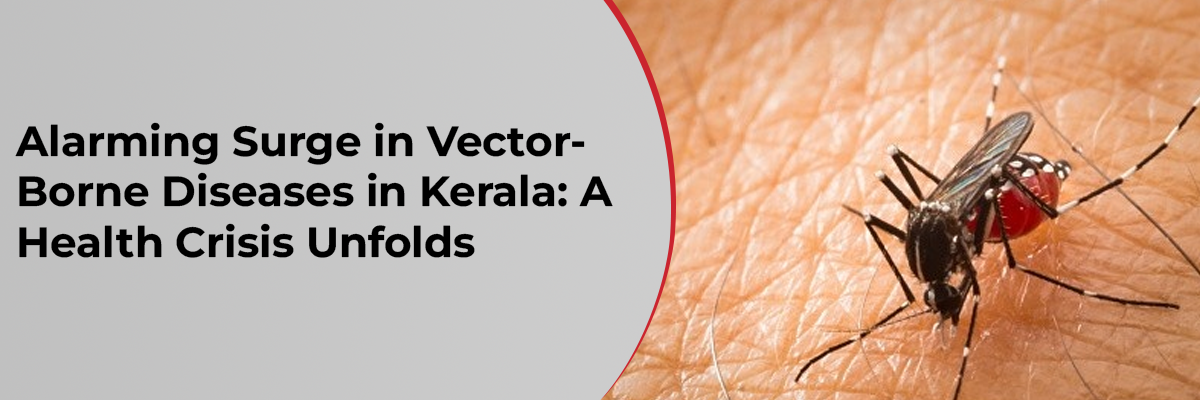
 IJCP Editorial Team
IJCP Editorial Team
Alarming Surge in Vector-Borne Diseases in Kerala: A Health Crisis Unfolds
The up surging incidences of vector-borne disease incidences in Kerala have triggered critical demands for urgent attention and concerted efforts to contain the spread of these diseases and protect public health.
Kerala is currently grappling with a concerning health situation as the official figures for dengue cases reveal a staggering 132% increase in the first half of 2023 compared to the previous year. From January 1 to June 28, the state reported 3,409 confirmed cases and 10,038 suspected cases. This is a significant rise from the mere 1,472 confirmed cases and 4,311 suspected cases reported in 2022.
In addition to dengue, other mosquito-borne diseases such as scrub typhus and West Nile fever have shown an increase in comparison to previous years. This year, there have been 241 reported cases and five deaths due to scrub typhus, whereas, in 2022 and 2021, the figures were 180 cases with four deaths and 136 cases with four deaths, respectively. Cases of West Nile fever have risen from three last year to 12 this year, including one confirmed death.
Despite active efforts to eliminate malaria in the state by 2030 through the malaria elimination program, the numbers indicate that these endeavors have yet to yield the desired results. This year, 143 malaria cases have been reported, compared to 153 in 2022 and 83 in 2021.
On a positive note, the incidences of Chikungunya and Zika have significantly decreased in 2023 compared to the previous two years. However, overall, there has been an increase in the number of vector-borne diseases, encompassing dengue, malaria, Chikungunya, acute encephalitis syndrome (AES), Japanese encephalitis, scrub typhus, Kala Azar, Kyasanur forest disease, Zika, West Nile fever, Nipah, and other fevers.
In response to the rising number of vector-borne diseases, a joint meeting was held among health, local self-government, and general education ministers. Regrettably, this meeting took place as late as June 22, by which time the monsoon season had already begun, facilitating the spread of these diseases in Kerala. The minutes of the meeting indicate that various decisions were made, including conducting awareness campaigns in local communities and schools. Additionally, penalties are to be imposed on individuals found dumping garbage in public places and water bodies.

IJCP Editorial Team
Comprising seasoned professionals and experts from the medical field, the IJCP editorial team is dedicated to delivering timely and accurate content and thriving to provide attention-grabbing information for the readers. What sets them apart are their diverse expertise, spanning academia, research, and clinical practice, and their dedication to upholding the highest standards of quality and integrity. With a wealth of experience and a commitment to excellence, the IJCP editorial team strives to provide valuable perspectives, the latest trends, and in-depth analyses across various medical domains, all in a way that keeps you interested and engaged.










.jpg)








.jpg)


Please login to comment on this article